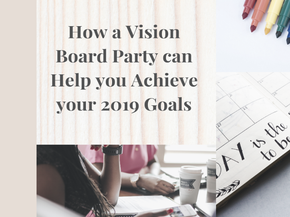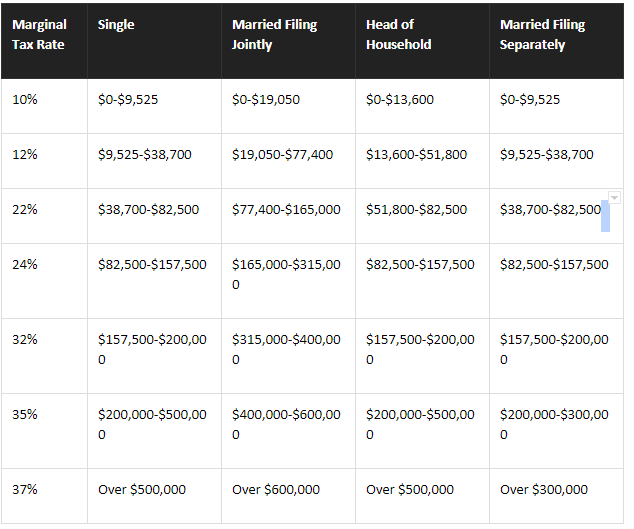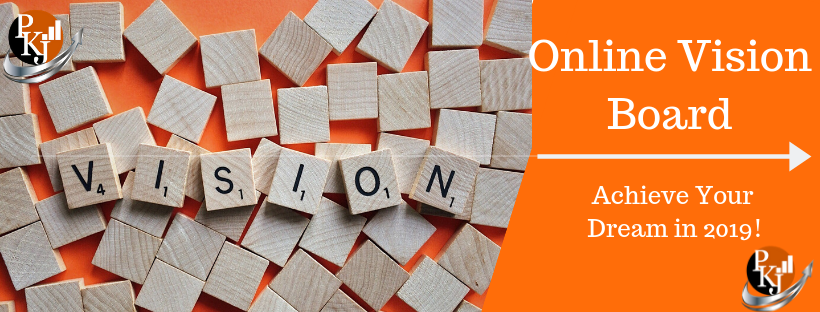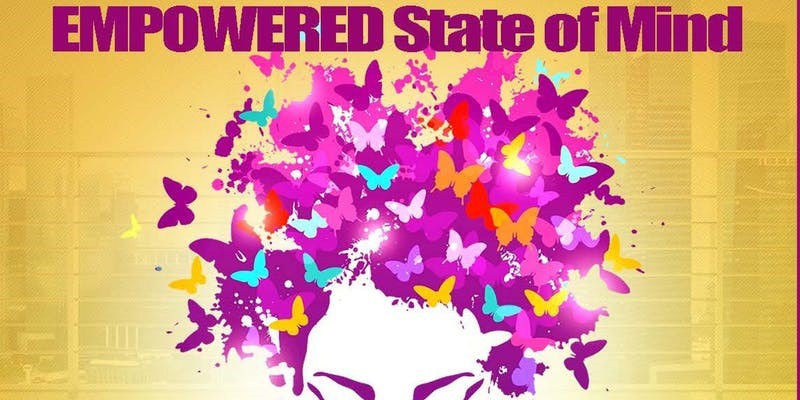 With the tax season upon us, many are wondering about how all the new Tax Reforms will affect them. Here is your quick guide to the most important changes 2018 Tax Brackets Standard Deduction and Personal Exemption The standard deduction has basically doubled for all filers, but the personal exemption has been eliminated. The marriage penalty is also gone. Child Tax Credit
Education tax benefits
Retirement Plans
Itemized Deductions Because of the effect of changes to the standard deduction and limitations on itemized deductions, the use of itemized deductions will likely be reduced for most taxpayers. The income based limit on overall itemized deductions has been eliminated. The following is a summary of changes to itemized deductions:
Mortgage Interest
Medical Expenses
BUSINESS TAX CHANGES! Passthrough Deduction for Qualified Business Income
Meals & Entertainment Business Expense Deductions
Want to book a consultation - click here!
1 Comment

'Tis the season for resolutions and goal setting! This is the time of year, many of those with 9-5 jobs are plotting their escape so I chatted with Anna Lunderberg, founder of 'One Step Outside' and author of the book, 'Leaving the Corporate 9-5: Stories from People Who've Done It and How You Can, Too.' Anna's held some pretty cool 9-5 jobs with businesses like, Dolce & Gabbana and Burberry. I was excited to have her as a guest on the podcast where she shared some tips on finally starting that entrepreneur journey you've been thinking about starting or started and can't seem to stay focused on business goals you want to achieve. {PHYLLIS} Greetings and welcome to another edition of small business conversations with PKJ. I am your host, Phyllis Johnson of PKJ Consulting. PKJ Consulting provides accounting and consulting services for entrepreneurs and small businesses. Services include accounting, bookkeeping, consulting, human resources, operation, startup and administrative services, and more. {PHYLLIS} Discovering your passion, utilizing your knowledge and going on your journey to start and grow your business. This is the purpose of my podcast, to inspire others to take the leap and go after their dreams, whether it's while working a full time job or simply leaving the corporate nine to five behind and today I had the pleasure of interviewing someone who did just that. Not only did she leave, she also interviewed 50 others who did the same thing, whether it was in the form of simply becoming a freelancer, consultant, starting a brand new business or going in a different direction totally such as working in the nonprofit sector. Anna Lundberg is the founder of, One Step Outside where she helps people around the world build businesses and create a lifestyle that allows them an un-imagined sense of freedom, flexibility, and fulfillment. {PHYLLIS} She built her professional career in beauty and luxury marketing, working with big brands such as Dolce & Gabbana, Hugo Boss and Burberry. Today, she continues to write and consult and train businesses on how to build powerful brands and effective marketing strategies and how to best build and implement these in the organization. Since leaving her corporate job in 2013, she's now re-imagining what success looks like and she's passionate about inspiring and supporting others to do the same. Anna is the author of, 'Leaving the Corporate 9-5: Stories from People Who've Done It and How You Can, Too.' Now, anyone who knows me and has been around me long enough knows I always say all I need is a laptop and wifi. Well, thanks to my wifi, I'm interviewing Anna who's all the way in London today, so let's jump in and get to know Anna! {PHYLLIS} Good morning! Or should I say good afternoon? How are you? {ANNA} Yes. Good evening from London. Phyllis, thank you for having me. {PHYLLIS} So, I see that you've worked for some big name companies. Tell me more about the passion behind why you decided to leave and start working for yourself. {ANNA} It's a great question and it hasn't been very linear. I think that's maybe the case for a lot of us and certainly a lot of the people in my book. I have to really go back to sort of before, before I got that first job because it really was my first job in marketing. I had studied international relations and politics and economics and I wanted to work at the UN, the United Nations, and I did some internships there, but for whatever reason I ended up in the private sector. So for me, to some extent- it was never really something that I went into, you know, intentionally really knowing what I was doing and passionate about it to begin with. So there were people around me who had done, you know, marketing business degrees and they were so excited about working at this big company that's incredibly successful in the industry. {ANNA} And, but for me, I was always a little bit detached from it. So, fundamentally I felt like it wasn't really where I wanted to be and then I did stay there seven years because it was a fantastic company and it was Proctor & Gamble. So, an American company based in Cincinnati. I was in Geneva, in Switzerland. I learned so much and my colleagues were amazing and you know, the brands were fantastic and so on, but again, fundamentally it wasn't really what I wanted to do. And I think during that whole time I was there, I kept telling myself and telling anyone else who would listen that, you know, I didn't want to be there and I'm wanting to do something else, but I never did anything about it and I'm still not entirely sure what triggered me, but for whatever reason, I guess I was kind of worn down over time. I asked for a sabbatical initially and so I went to travel three months in South America by myself and it was during that trip that I got the courage to then sort of begin to imagine a world outside of this job that I was doing. And then I actually quit halfway through that sabbatical because I knew if I came back, probably settled back into my comfort zone. {PHYLLIS} Wow. That is amazing. I actually have a friend who is kind of in the same mindset. She actually just came back from London and now she's kind of questioning whether or not she wants to continue with her company. So it sounds like what you did was you were kind of on that rat race and going, going, going, and then took a moment to step outside of everything that was around you to really make decisions. That's an amazing thing that you were able to do and a lot of people need to do that, you know? I do the same thing once a year. I go to Arizona and I just zone out and focus on what do I want to accomplish for the next six months to a year. So, that's pretty amazing. So tell me a little bit more about your educational background. I was looking at your book and it said that you graduated as a Valedictorian for school. But tell me a little bit more about the knowledge you acquired over the years to start your business. {ANNA} Well, again, I think it was very organic and it's funny that, you know, you mentioned the valedictorian piece. Then I went and talked for the university, you know, one of the sort of equivalent of Ivy League in England. And I say those things not because it's the prestige and status, although of course that is the case, but I say it almost the opposite because I felt like that education didn't set me up for success in the world as it is now and I was that eternal good girl in the sense that I was constantly looking for external validation from teachers, from parents to tell me that I was good, that I'd done the right thing, I had the right answer. And that approach just isn't useful in the world. And it definitely isn't useful as an entrepreneur. So in a way the formal education, although of course it, you know, it develops my creative thinking and curiosity and lots of knowledge and skills and all sorts and time management and those things were important and discipline and it didn't really equip me with the real world skills I think I needed. {ANNA} And so it has been, you know, it was five years ago, almost six now, I guess since I left my job and there have been definitely some twists and turns since then. And initially, I sort of fell straight into marketing consulting. So I took effectively the exact work that I was doing and just took it to different clients, which is a great way. And I write about that in the book as well to sort of take a step out of the nine to five without taking too much of a step so that it becomes too much of a difference. I was still very much leveraging the marketing, the business background and so on and my network. But then I realized that that was not a big enough step for me away from, you know, what I wanted to do. I had much bigger vision for what I wanted to do. {ANNA} And so I sort of quit that, insofar as, you can quit working for yourself. And then I went through what I like to call my hippie phase when I rejected all of that business and marketing experience and then I discovered coaching and I went traveling and like you, you know, I had my laptop and wifi and I thought this is amazing! I can go anywhere in the world and I can work for myself. But if I'm honest, I wasn't really taking it so seriously in the sense that I was living on my savings and I really wasn't earning a lot of money. I kind of was quite comfortable because I'd been earning both in that full time job. But then also as a consultant I had quite a nice buffer but I wasn't really planning for the future. So it's only after those two phases of first, not taking a big enough leap and then maybe taking too much of a leap. {ANNA} I've now come to this really lovely balance where I've gone back to, well not really going back to, but you know, I've accepted and acknowledged that I have all this business and marketing experience on the one hand. But I've also added the coaching skills and my life philosophy and my thoughts around, you know, taking care of your well-being and all these other amazing things and that I've mixed it all together into what I think is a much stronger business proposition. But as you can tell from my rambling there, you know, it certainly hasn't been an obvious sort of step by step process and from school to university to the work in the business and so on. {PHYLLIS} And that's perfect. I mean, I tell everyone that, you know, I got my master's degree in entrepreneurship management, but there's nothing like hands on training. So a lot of times we have these degrees and it's very structured. But once you really try to start a business, there's nothing like hands on training and actually getting down and doing it because you really don't know, what you don't know. And school is kind of there to give you the foundation but, you know, you can be a consultant and there's 100 different types of ways to do consulting. So, I appreciate you saying that, you know, even though you had the educational background and you took this step out to do what you were already doing, which is what, you know, it is smart to do it that way. Kind of like, okay, you're an accountant, so starting an accounting firm, but then to take yourself to the next level, it is to offer other things and kind of continually grow. So I do appreciate, you know, her pointing out that it's not a straight one, two, three step path to starting your business and growing it. So a loop, in a circle and going back and up and down and kind of figuring out as you go. And even right now, I'm sure you're still trying to somewhat figure stuff out as it goes along. {ANNA} Absolutely. It's a continuous evolution. {PHYLLIS} Yes! So you talked a little bit about, you know, your knowledge and your passion and somewhat of your journey. Tell me a little bit more. I want to know more about the journey of how you created your book and specifics. {ANNA} Well, the book is a funny one because then actually what happened, again, I have to get back into 2013 when I went on that trip. And well, even further back, I guess. I've always wanted to be a writer, whatever that means. So I've always written, when I was younger I made up these ridiculous, awful sort of romantic novels. A lot of sweet valley high kind of thing, but very, very poor copies and you know, I wrote little fake news letters and stuff. So that's always been on my mind. But I think parents, teachers told me, "Oh, you can't make a living being a writer." You know, "you can write in any career, so don't take that seriously," kind of thing. And I guess I listened to that and, but it's always been there for me. So when I initially went off to travel and then also quit my job, I did have this vague idea that I wanted to write. {ANNA} And what I did was I started a blog, which, you know, now looking back, it's so basic. I had a free wordpress.com site. There's literally just like a greeny blue background and then text. But for me it was a massive thing to start putting myself out there. And I know it is a big decision for people, you know, it's a big deal to begin to write things that then random strangers around the world can read. And that started off as a travel blog. But then over time it evolved into my career musings and more personal development. Then it ultimately became a platform for my business. And along the way, very early on actually, and I began to meet other interesting people, of course, more interesting than me. They had already left their nine to fives and they were doing amazing things. And I must admit that it was mostly for selfish reasons at the beginning. I just wanted to inspire and reassure myself. {ANNA} So I began to ask if I could interview them for my blog and you know, get their journey. A bit like what you're doing now in your podcast. Understanding, you know, what triggered them to leave? What were the challenges? Where did they get the support and what advice would they give? And so over the last five, six years, and I continue to do this now. I've been publishing this monthly series and obviously it sort of came together both in that, I still want to and will continue to publish books and be an author. But, on the other hand I had these amazing stories and in fact now as you said, I had 50 stories of people who had left their jobs and getting the nine hour coach people to leave their jobs and to set up their own business. It's just all kind of came together in this magical place where sort of my personal goals and ambitions really suited putting these stories out there. So again, it happened quite organically that I already had the content and it was more about shaping it into a book and adding that additional perspective and guidance around it. {PHYLLIS} Perfect. I'm shaping the content. You know, that's something that I've interviewed a few people now and they say the same thing, it's kind of, you know, how this information that you're seeking and it kind of becomes a book or a business. That's kind of the same way for me. Starting the podcast is...I was inspired by other people's stories and some of my clients. I'm inspired by some of the stuff that they do because I get to learn from them even though I'm helping them. So I kind of like how you had that in your book. So One Step Outside, I love the name of your company. It's kind of like putting one foot forward to just go along your journey. How'd you come up with that name and tell me more about your company and what you do? {ANNA} Yeah, I'm really glad you like it. And it comes from the quote, 'Everything you've ever wanted is one step outside your comfort zone.' So there's a couple of aspects there that I love. One is that you have to grow and get out of the comfort zone and you know, I went to South America by myself. You mentioned, you know, the importance of getting away from your, I think your natural environment, you know, your existing friendship groups and that little bubble where you're living at the moment. So getting out of their comfort zone to grow and challenge yourself as one piece. But then, as you said, it's the one step. It doesn't have to be this massive leap. I think we tend to think in black and white terms that I'm over here in this corporate job and I'm miserable. And then I went over there, this completely unreachable, impossible dream. {ANNA} And there are so many steps along the way. Again, with my journey, I took a big step for me to take a sabbatical and then another big step to leave. Another big step to set up a consulting and another big step to, you know, leave the consulting. And each of those decisions is big and requires courage but it's steps along the way that gets you closer and closer to where you want it to be. And to be honest, you'll never really know where that place is to begin with. Certainly, I didn't even know podcasting and coaching and all these things existed five, six years ago. So, you know, it's not something you can sort of plan from behind your computer. But again, the business has evolved from my own personal experiences. So, obviously since I've left my job and since I was writing about this and then combining that with writing and consulting around business and marketing, it's happened very organically that people have come to me for advice. {ANNA} Both and this is what I love really in the business, both around the concrete brand strategy and how do I do this, that and the other? But also, and even more importantly, they're more sort of life coaching piece that we think of in terms of getting clear on that vision, overcoming your fears and, and finding a practical way to manage it all. So I would just love the combination of the tier because really we need both. So even though we might think it's the business guidance we need, often there's something else going on underneath. And obviously as we said, it's an evolution in the business and also an evolution for me. I'm constantly challenging myself and growing the business and I think the business and my clients will evolve with me as well. {PHYLLIS} Perfect. I love that. That's exactly what you said is getting everything you've ever wanted is one step outside. I love that quote. I'm writing it down. Tell me about one of your biggest wins or success stories in your journey. {ANNA} Well, I'm going to have to say the book simply because it was on my computer for like a year. And again, you know, I've had this dream for my entire life and I co wrote a book a couple of years ago with a colleague with a friend, which was a massive achievement, but it was, you know, it was a thinner book. It was very sort of, um, it was a list. And again, it was kind of quotes from people and it was very much rooted in my old life. Say for the last few years I've been really wanting to put something out that was more reflective of where I was. And again, putting out these stories that I'm really proud of. So, and it had been sitting in my computer. I finally gave myself the deadline to published by my birthday this year. And you'll be amazed what a deadline can do for yourself because if I hadn't set that, then it would certainly still be sitting on my computer. Obviously the last few weeks were quite hectic, but, that was a massive win for me this year to finally get that out there and to hold the book in my hand. {PHYLLIS} Congratulations! She said something that I want to touch on a little bit. Set a deadline. A lot of times we have these goals that are just kind of in our head and our dreams and we kind of want us to do them and they sound good. But if we set a hardcore deadline, it makes it a reality because then we have to sit down and say, you know, "okay, my goal for myself was to launch my podcast for Halloween. You know, my favorite color is orange, my business colors are orange. I'm going to launch this on Halloween. Okay, that's great. What do I need to do to get to that launch date? Because on October 30th, I cannot just sit down and create this." So, when you have a deadline, you know, you really then sit down and kind of put together the framework of what is needed to do that deadline. {PHYLLIS} Another thing that I do is, you know, maybe you want to take some type of certification or something that costs money. What I've done in the past and say, okay, I'm going to, you know, get my HR certification, for example. I would just pay for the test and it would be in, you know, six months or three months or whenever it was. And once you pay for something, you're going to kind of force yourself to take it a lot more seriously. So, I love that you set a deadline and got that out. So tell me about a loss or a time where you had to learn a lesson from something that you did wrong. {ANNA} Yeah, I love that. The orange and the Halloween. That's fantastic. And to be honest, that's something that came out in the book as well. A lot of people said just buy the ticket, book the course, send the email, do it, you know? Nobody regrets ever. Whatever happens, even if they actually ended up not working on that particular business or even going back to full time job, there's never any regrets around doing that thing that they've dreamed of for so long and just haven't quite did. So 100 percent agree. In terms of losses, I feel like I've been very lucky and you know, gratitude is something that's quite fashionable to talk about, but I do think that is important. I I do try to recognize, you know, health wise and family wise, I've been very lucky and there have in the last few years been some personal illnesses in the family and myself as well and so on. That has been, you know, shaking things up a little bit. {ANNA} But that's, you know, since I am now shifting everything and re-imagining success, as I call it, I feel like, you know, I don't have regrets. I make sure that I spend time with the people who matter most and take care of myself and so on. And so on a personal level, I really do my best to, I don't want to say be ready for that kind of thing, but you know, at least do what I can and work wise, I guess I'm quite naive and I'm a big fan of lifelong learning so I tend not to get too emotional about things that maybe other people would see as failures. And I see it all as again, steps in the process. So you do a webinar, only a few people turn up, you launch a program and a couple of people buy it, whatever it is. Each thing for me is just sort of a step along the way. And even if it takes longer than you think, I just see it as, you know, actually I'm investing now in my future. I'm hopefully going to live for many more years. I'm definitely going to be working for many more years so there's plenty of time. And it's easy again, to get very ambitious. {ANNA} You know, this year I wanted to launch my group program, a my book and the podcast. Funny you should say that, too. And although I will have done those three things by the end of the year, I certainly wasn't able to do them all at the time when I thought I would. And I think again, you know, if we try to do everything right away, that's never going to happen. But it's totally feasible if you give yourself a five year deadline, 10 years or even more. So hopefully, I'm taking every little so-called setback or sort of slow period or whatever it is as a learning experience. And then just getting up the next day and going again and moving forwards and steadily making progress. {PHYLLIS} I love that. "It's not really a failure. It's a step in a process." A lot of times we have these big, huge goals and then we do it and like she said, you know, you have a webinar, for example, you know, I want to do a Webinar and if only 10 people show up, is that a failure or is that a learning lesson? And sometimes we say, "Okay, 10 people showed up, never doing it again," but what we really have to rewire our minds to say is, "10 people showed up. That's 10 people more than would have showed up yesterday." And then it's, "well, how do I get to 20?" So, I like that she said it's steps in a process. {PHYLLIS} So, I'm going to now kind of wrap up what she said and go over some of the great tips that she said. One thing that I love that she said is. "Everything you've ever wanted is one step outside." You know, so we're always kind of scared to do something, but it's taking that one step. It's purchasing that one ebook. It's listening to that one podcast. It's signing up for that one webinar that's going to enlighten you to make a change in what you want to do with your life. {PHYLLIS} Getting out of your bubble. That's a huge one. I mean, every day we have the same thing that was going around us. The same people, the same conversations, the same Facebook friends, everything's the same. So it's really hard sometimes to step out of your reality. Um, she goes to South America, you know, I go to Arizona, I love to travel as well. So, you know, maybe you can't afford to do as much traveling. Maybe you just go to the other side of your town and book a hotel room for a weekend and just focus. So that's something that's really important because it clears your mind of the day to day tasks that are in your brain. {PHYLLIS} The number three thing that she definitely said that I loved was, set a deadline. Whatever your goal is, doesn't matter how big or small it is, set a deadline and then work backwards to figure out what is going to need to accomplish that goal. So if it's to start a business, it's, you know, start your business by January first. That's great. You have a whole month and a half to do it. What are the steps to do it? Who's going to be able to help you? What do you need? You know, it's easier to break it down into little tasks and as you accomplish those goals, you feel so much more successful. And then January first comes and your business is launched. So, Anna, I want to thank you so very much for joining our podcast today. Do you have any, if people wanted to get in contact with you, how would they be able to reach you? {ANNA} Yeah, thanks, Phyllis. It's been such a pleasure. The company is 'One Step Outside' so you can find me pretty much everywhere. OneStepOutside.com and in particular on Facebook, I have a page, but really the group, the One Step Outside Facebook group is a great place to be. I'm in there every week doing free sort of inspirational or practical training sessions. I'm answering questions every day and most importantly a group of like-minded people who are working on a similar or even very different goals in their lives. The One Step Outside Facebook group is a great place to interact with people and help you move towards those goals and deadlines that you set yourself. 
Are you tired of letting another year go by where you don’t meet your goals? We all have the best intentions; however, life can get in the way, we can lose motivation, and we can lose focus. 2019 is the year to take a focused, organized approach to your goals and accomplishing them! Creating a vision board can serve as a visual representation of the goals you set to accomplish in the new year and help you stay on track all year long. It is also a good way to track your progress throughout the year, be proud of your successes and evaluate your failures. Many of us see vision board party invites appear on our social media timelines around this time of year. Maybe you are familiar with what a vision board party is, but have never actually been to one or don’t see a clear benefit. Here are some benefits of participating in a vision board party that can help you reach your 2019 goals as well as keep you accountable for the year to come. The phrase “seeing is believing” holds true to creating a vision board. When we create something tangible that we can focus on daily that reminds of us of what we want to accomplish, we are more likely to meet these goals. We all have things that we would like to do in 2019, but do we actually write them down? Do we create action plans? A vision board party provides you a guided, structured environment where the focus is on creating a high-level view of the things you want to accomplish while having fun and interacting with other likeminded people. You may also find that you and a few others have the same goals and can work on accomplishing them together. Don’t let the communication stop when the party is over! You can also use this as an opportunity to find your accountability partner and keep in touch. You will have a much higher rate of being successful if you have others rooting for your success! You may also encounter others who can help you reach your goal. If you want to buy a property within the next year, there may be a real estate agent sitting right next you who can help you on your journey. Make sure to take advantage of this opportunity to network. A vision board party also provides you the opportunity to share your goals. Many of us may think of what we want to accomplish but don’t share it with others. However, talking about your goals allows you the opportunity to gain insight from others and build a support system that you can lean on. Lastly, vision board workshops give you access to expert guidance and usually include knowledgeable facilitators and guest speakers. You can use this opportunity to utilize the experts to help you determine realistic goals. For example, if you want to pursue an advanced degree in the next year, perhaps you need to pay off some debt first, apply for scholarships, or find another job with a more flexible schedule. Although the advanced degree is the end goal, there may be some sub-goals you need to reach beforehand. Experts can help you break down your goal into small manageable actions, making your seemingly impossible goal now reachable! A vision board party environment can help you acknowledge these things and tackle them head on. Are you ready to attend a vision party to help you accomplish your goals in 2019? Here are two great in-person and online options
Online Vision Board Workshop – Facilitated by PKJ Consulting
Includes online access to the Empowered State of Mind workshop! When: Saturday January 12, 2019 at 10:00 AM Learn more and get your tickets at this link
Empowered State of Mind – Facilitated by Wondrous Occasions
When: Saturday January 12, 2019 at 2PM Learn more and get your tickets at this link |
Archives
March 2021
|
|
ADDRESS: 2850 W. HORIZON RIDGE PKWY STE 200
HENDERSON, NV 89052 EMAIL: [email protected] PHONE: (702) 420-2408 |
|
Copyright PKJ Consulting © 2024





 RSS Feed
RSS Feed